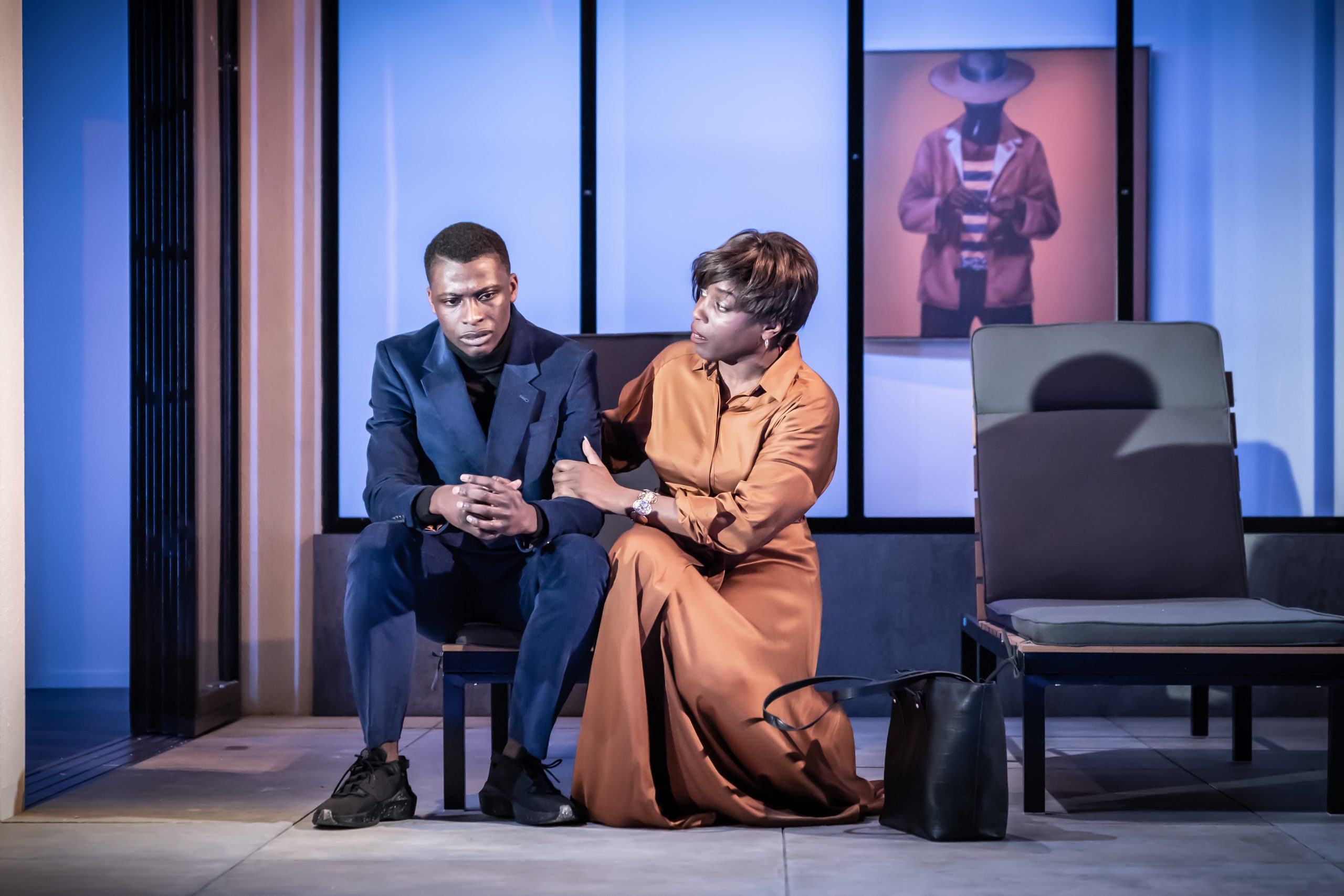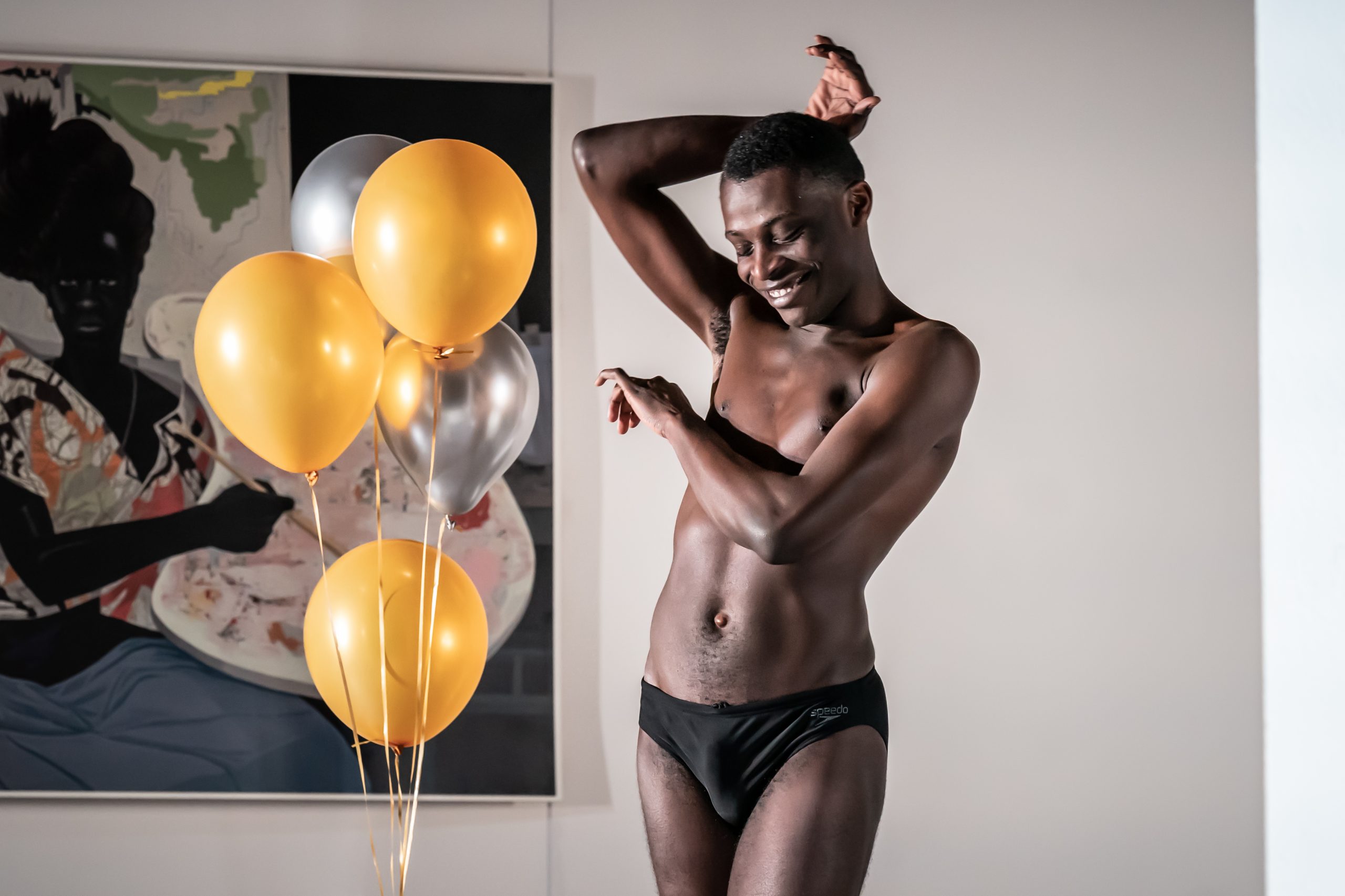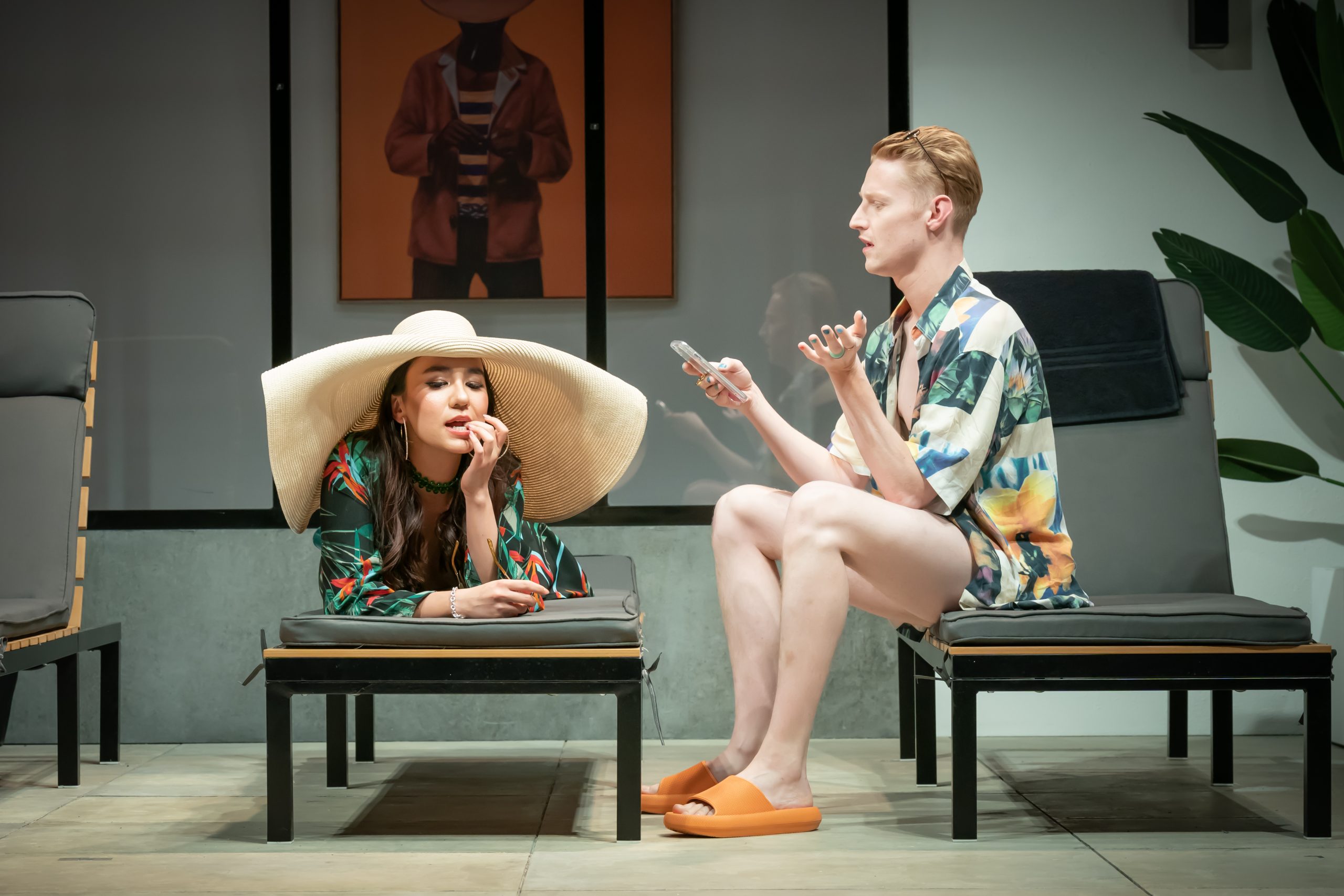
Due to open in March 2020, Jeremy O. Harris’s “Daddy” finally opens at the Almeida Theatre following its delay from Covid and fresh from the success of O. Harris’s Slave Play on Broadway.
“Daddy”: A Melodrama charts the relationship between a rich older white art collector Andre (Claes Bang) and Franklin (Terique Jarrett), a struggling young black artist. The play opens the night they first meet. As barely clothed Franklin marvels at the many masterpieces in the wealthy collector’s Bel-Air home, Andre marvels at the young artist, his latest collector’s item.
The staging is inventive. It’s a bold move to include a swimming pool in the set.
Andre’s gaze devours Franklin even before a kiss which looks like it will gobble him up completely. The fetishism is writ large as Andre refers to Franklin’s “chocolate” skin and likeness to Naomi (referring to Supermodel Naomi Campbell).
There was a sense of discomfort about the power dynamic and the play continues to explore power, ownership and exploitation throughout.
Early in the first act, the script encourages the audience’s nervous laughter at what perhaps they felt were the gauche over-zealous fawning’s of a middle-aged man. For a black person, you are simply watching the objectification of blackness.

Discomfort grows as the unbalanced relationship rapidly progresses. Franklin quickly moves in with Andre and sets up a studio to prepare for his upcoming art exhibition. A sexual encounter between the two early in the first act sets up the father-son dynamic. A fetish that appears mutually consensual and which allows Franklin to occasionally retreat into a childhood version of himself. Perhaps like the little Black dolls that he produces as part of his art.
Objections to the relationship come from his vacuous friends, a jealous Max (John McCrea) who camp out in the Bel-Air mansion and social media addict Bellamy (Ioanna Kimbook) whose own sugar daddy aspirations encourage her to more embracing of Franklin and Andre’s relationship.
The play is most successful as a blistering satire on the art world.
Objections also come from Franklin’s mother Zora who is introduced alongside a gospel choir (Rebecca Bernice Amissah, Keisha Atwell and T’Shan Williams acting as a chorus, using the language of a fast-talking preacher. Later when Zora visits, played ably by Sharlene Whyte, her character becomes an ominous figure around the Bel-Air home, playing into lazy stereotypes of black women as difficult.

However, I found the apex of the story to be problematic. Unfortunately, the exploration of ‘daddy issues’ results in a distasteful explosion that puts the n-word in the mouths of each of the white and black characters. And to what end? I couldn’t tell you.
The cast are talented and Terique Jarrett turns in a solid portrayal of Franklin who comes with a collection of issues including mental instability, self-hate, poor self-esteem, with a side-line in mommy and daddy issues.
The supporting characters Bellamy and Max have a real chance to shine in this production, directed by Danya Taymor. One of the highlights is Jenny Rainsford as Alessia, the agent with an eye on how to package Franklin to buying audiences. The play is most successful as a blistering satire on the art world.

Matt Saunders’ set design is inventive. It’s a bold move to include a swimming pool in the staging. The pool is reminiscent of David Hockney’s pool paintings particularly “Portrait of An Artist (Pool with Two Figures)” which is the setting for a lot of the activity, even the confused renewal theme towards the end of the play. It is wise to avoid the first three rows if you don’t want to get wet.
As well as the George Michael interlude, the gospel choir does fantastically as a witty musical chorus, and the Lee Kinney’s use of sound throughout to indicate phone calls or descents into Franklin’s psyche is expertly achieved.
For our black readers, I suggest going to writer Jeremy O Harris’s Black Out on April 12 – a performance where all the tickets are reserved for black audience members. Find out more.



























